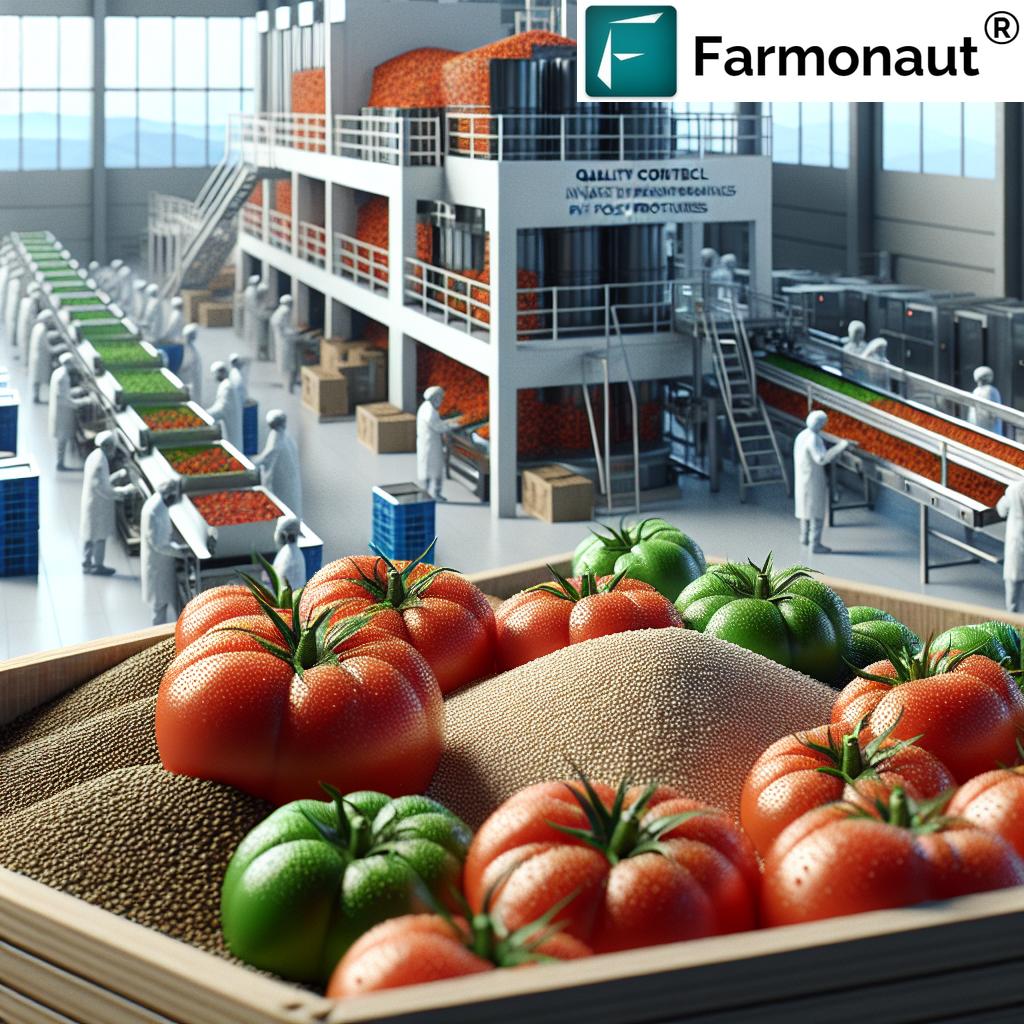Rice Production Nigeria: 7 Ways to Boost Local Processing
“Nigeria imports over 2 million tons of rice annually, despite being Africa’s largest rice producer.”
Overview: Nigeria’s Agro-Processing Landscape
As stakeholders in Nigeria’s agro-processing sector, we recognize the urgency to address systemic threats—from unchecked imports and climate change to soaring costs and smuggling. Our nation, rich in agricultural resources and potential, faces a paradox: we remain the largest rice producer in Africa, yet Nigeria continues importing millions of tons of food staples annually, putting domestic investments and the future of our local processors at risk.
The Tinubu administration has made strides in supporting food production, but as stakeholders and investors, we must highlight the pressing need for bolder, more coordinated agricultural policy reforms Nigeria requires. Our focus extends beyond rice production in Nigeria to the broader ecosystem—especially the precarious state of local tomato processing.
If we truly aim at reducing food imports, boosting local capacity, and driving inclusive economic growth, strong policy, investor support, and technology utilization are imperative.
Risks and Challenges Facing Rice Production in Nigeria
Over the years, both local and foreign investors have channelled trillions of naira into expanding agro-processing infrastructure. This capital—much of it allocated to processing rice, tomatoes, sesame, and other staples—was intended to curb post-harvest losses, create jobs, and propel the Nigerian economy. Yet, this progress is under grave threat:
- Unchecked border smuggling of finished products such as rice and tomato paste is flooding our market with cheaper alternatives, greatly harming local processors.
- Rising input costs—from seeds and fertilizer to energy—are making local production less competitive.
- Climate change and crop losses threaten the security of our farmers and investments, manifesting in pest outbreaks and unpredictable weather.
- Unreliable policy enforcement and policy somersault continue to discourage long-term agricultural investment opportunities Nigeria should offer.
- Limited support for Nigerian farmers in accessing modern technology, finance, and credible extension services.
Example: In Kano—Nigeria’s largest rice-producing center—more than 25 integrated rice mills possess a combined daily processing capacity exceeding 1,200 metric tons. But due to an influx of smuggled rice and volatile commodity prices, several plants run under capacity or shut down entirely.
“Local tomato processors in Nigeria operate at just 20% capacity due to high costs and import competition.”
Policy Reform: 7 Ways to Boost Local Rice and Tomato Processing
To secure the future of Nigerian food production and agricultural investment opportunities Nigeria offers, we as stakeholders must urge bold action on these seven transformative reforms:
-
Strengthen Border Controls and Anti-Smuggling Measures
The unchecked smuggling of finished agricultural products like rice and tomatoes across porous land borders continues to undermine our local processors. Prioritizing advanced border surveillance, technology-based monitoring, and stricter law enforcement will help protect local capacity and ensure a fair market for Nigerian goods. Collaboration with regional authorities can streamline border management and tackle the illicit trade choking our industry. -
Align Input Costs With Commodity Prices
Farmers and processors are squeezed by the widening gap between input prices (like seeds, fertilizer, and fuel) and the price of raw agricultural products. The government can stabilize input prices through strategic subsidies or public-private partnerships, ensuring farmers and processors can reinvest in their operations and maintain Nigeria’s food self-sufficiency.
Recommended:- Modern fertilizer and seed distribution networks, supported by regular price reviews.
- Funding for climate-resilient inputs that withstand pest influxes and unpredictable weather, mitigating climate change and crop losses.
-
Enforce Local Content and Anti-Dumping Policies
Advocacy must continue for the firm enforcement of existing import policies—including anti-dumping and import levies on processed food products. Revisiting and restructuring such policies will ensure they truly reduce reliance on unnecessary food imports and push for greater use of locally produced staples in Nigeria’s markets. -
Boost Climate Adaptation and Disaster Management Programs
Frequent flooding, heatwaves, and disease outbreaks (like Tuta Absoluta in tomatoes) call for immediate scaling of climate adaptation programs. This includes:- Active collaboration with farmer associations and climate-resilient agencies.
- Investment in early warning systems, farmer education, and pest management solutions.
- Prioritizing region-specific research on resilient breeds and disaster preparedness.
-
Expand Funding for Agricultural Research and Seed Development
Key institutions such as NIHORT (Ibadan) have spearheaded breakthroughs in local seed development. Scaling such successes across crops and states, and channeling greater funds into research, is vital for harnessing quality, resilient seeds. This will in turn reduce our reliance on foreign inputs and stabilize domestic production. -
Support Modern Agro-Processing Infrastructure and Technology Adoption
We must ensure our processing plants, especially in major hubs like Kano, are equipped to global standards. Encouraging agricultural investment opportunities Nigeria offers through stable power supply, accessible funding, and integration of smart technology (for example, satellite-based crop monitoring) can greatly increase output and efficiency. Institutions like Farmonaut provide advanced farm management tools, precision agriculture services, and blockchain-enabled traceability that strengthens supply chain confidence and reduces fraud. -
Deepen Collaboration with Farmer Associations and Stakeholders
Success hinges on a bottom-up approach—policy makers must proactively involve farmer associations, processors, and local communities in both planning and execution. Tapping into their collective experience and acute local knowledge guarantees faster, more sustainable sector-wide progress and ensures reforms truly address farmers’ and investors’ most urgent concerns.
Each of these reforms is interlinked and, if adopted in concert, will yield higher production rates, less post-harvest losses, and safer, more attractive prospects for investors across Nigeria’s food sector.
Comparative Impact Table: Key Policy Reforms for Rice Production in Nigeria
Below, we present a comparative table outlining the estimated effects of policy reforms critical to Nigerian rice production and local processing. This data-driven snapshot, crucial for investors and policy makers, highlights the practical outcomes and sector-wide impact of each measure.
| Policy Reform | Estimated Impact on Local Production (%) | Estimated Cost to Implement (USD Million) | Potential Benefit to Investors |
|---|---|---|---|
| Strengthen Border Controls & Anti-Smuggling | +25% | $100 | Greater market share for local processors, improved investment security |
| Align Input Costs with Commodity Prices | +18% | $160 | Lower production costs, improved profitability across rice and tomatoes |
| Enforce Local Content & Anti-Dumping Policies | +16% | $40 | Enhanced price competitiveness for made-in-Nigeria products |
| Expand Climate Adaptation & Disaster Management | +14% | $85 | Reduced climate risk, more resilient production, fewer insurance claims |
| Fund Agricultural Research & Seed Development | +13% | $70 | Consistent crop quality, sustainable yields, lower import dependency |
| Support Agro-Processing Infrastructure & Technology Adoption | +19% | $120 | Higher processing volumes, job creation, long-term value chain growth |
| Collaborate with Farmer Associations & Stakeholders | +9% | $20 | Policy alignment, quick adoption, more inclusive development |
*Figures are estimates based on sector-level assessments and may vary based on policy details and implementation efficiency.
Farmonaut: Empowering Nigerian Farmers and Investors
Farmonaut offers a robust set of smart agriculture tools and technology solutions, perfectly positioned to help farmers, investors, and processors enhance their operations, reduce risk, and maximize yield—all critical to the future of rice production in Nigeria and local tomato processing.
- Satellite-Based Crop Health Monitoring: Get real-time insights on crop vigor, vegetation health (NDVI), and soil moisture, allowing data-driven irrigation and input management across large fields.
- AI-Powered Jeevn Advisory: Receive science-backed crop management strategies, tailored to local weather and field conditions—boosting farm productivity and supporting efficient input usage.
- Blockchain-Enabled Traceability (learn more): Build consumer trust and secure agro-processing supply chains by verifying the journey of every batch, helping prevent fraud and ensuring food safety from Kano’s rice to Lagos’s markets.
- Resource & Fleet Management: Cut operational costs and track agricultural machinery, ensuring on-time harvests and reducing post-harvest losses. Explore Fleet Management use cases here.
- Carbon Footprinting: Monitor and reduce environmental impact. Sustainability is now a critical investment criterion—see detailed Carbon Footprinting solutions.
- Financial Inclusion: Simplify crop loan and insurance processes for farmers with satellite-verified field data. Read more about our satellite-powered insurance.
These advanced tools are accessible through Farmonaut Android/iOS/Web Apps or by integrating with our API (API Access, Developer Docs). This helps every operator—from smallholder farmer to large agribusiness—make smarter, faster decisions, increasing yields and safeguarding investments at scale.
For large farms or agri-corporates, manage everything efficiently and remotely across plantations using Farmonaut’s Large-Scale Farm Management Platform.
Investor Insights: Protecting and Growing Nigeria’s Agro-Processing Sector
If Nigeria’s agro-processing sector is to thrive, we must balance strong policies for protecting local food processors and innovative technology with a clear focus on investor confidence. Here’s what the data and recent stakeholder concerns tell us:
- No more policy U-turns. Predictable, enforceable trade and investment policies are crucial to prevent a backslide in agricultural progress.
- Safeguarding investments made by local agro-processors is a national priority, especially in the face of unfair foreign competition and underpriced imports.
- Tighter border controls will directly benefit the 25+ integrated rice mills in regions like Kano, preserving the sizable Nigerian capital invested in processing infrastructure.
- Modernizing input supply chains, with fair pricing and climate-adapted seeds and fertilizers, guarantees long-term sector resilience.
- Investment in research & policy enforcement assures a consistent supply of high-quality seeds, reducing reliance on volatile imports and building future-ready agro-processing capacity.
In summary, sustaining food self-sufficiency in Nigeria’s agricultural powerhouse requires joined-up action: decisive leadership, technology-enabled monitoring, and long-term alliances with our most valuable asset—Nigerian farmers and processors.
Frequently Asked Questions
-
Q: Why does Nigeria still import rice despite being the largest rice producer in Africa?
Due to chronic smuggling, low market competitiveness versus imports, high input costs, and gaps in processing infrastructure, local production struggles to meet both quantity and price point requirements, leading to continued import dependence.
-
Q: How can farmer associations help sustain progress in rice and tomato processing?
Farmer associations provide critical grassroots input, help channel government resources efficiently, and enable fast, targeted response to local challenges—from pest management to input distribution and weather alerts.
-
Q: What role does climate change play in agricultural losses?
Climate change and crop losses are now major drivers of food insecurity and lost investments—hotter temperatures, erratic rainfall, and more intense flooding affect both harvest quantity and quality, with pests and diseases spreading faster.
-
Q: How can technology like Farmonaut help?
By making affordable, data-driven decisions possible for farmers, processors, and agribusiness: satellite imagery, AI advice, blockchain supply tracking, resource management, and carbon footprinting all improve outputs and safeguard investments. No costly hardware is required—just download the Farmonaut app.
-
Q: What are the policy reforms most urgently needed in the Nigerian agro-processing sector?
Border security, input cost rationalization, climate adaptation, technology adoption, stricter policy enforcement, and more inclusive farmer participation. These will help reduce food imports and grow a competitive agro-processing industry.
Farmonaut Subscription Plans
Farmonaut offers tailored, scalable subscription packages for farmers, processors, cooperatives, agribusinesses, and governments—enabling everyone to benefit from satellite-powered, data-driven agriculture.
Conclusion: Toward Food Security and Economic Growth
The realization of Nigeria’s food potential, especially in rice production and local tomato processing, rests on our collective will to implement bold reforms and technology-led solutions. As investors and builders in the agribusiness space, we believe that by strengthening policy, aligning input prices, boosting climate adaptation, and leveraging platforms like Farmonaut, Nigeria can not only feed itself but also become a continental export leader.
The future of our rice mills, tomato processors, and countless farmer livelihoods depends on decisive, coordinated steps. Protecting every naira committed to agro-processing infrastructure, ensuring transparent and fair markets, and empowering local communities through technology are the pillars of lasting growth.
Let us commit, as stakeholders, to deepen collaboration, keep policies stable, and adopt innovation at every stage of the value chain. The risks are real—but so are the opportunities for progress, investment, and national prosperity.
Ready to join Nigeria’s next agricultural revolution? Connect with data, protect your investment, and drive progress—try Farmonaut’s satellite-powered solutions today.

















